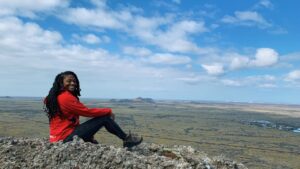

Because the holiday season is right around the corner, I thought it would be fun to share the list of Icelandic holidays and traditions they celebrate throughout the year. Some of the traditions might sound the same or similar to some of your traditions while others might be completely new to you.
Icelandic Holidays, Traditions & Celebrations
1. Fyrsti Vetradagur – First Day of Winter
As I am recording this, it is October and the next holiday tradition coming up is fyrsti vetradagur, which is the first day of winter. It is the Saturday that falls between October 21st and 27th and is according to the Old Norse calendar. If you are curious about what winter in like in Iceland, here is the link to my podcast episode “How to Survive an Icelandic Winter”. On this day, merchants on Skólavörðustígur, the street that leads to Hallgrimskirkja church, hand out free meat soup. From this day until the 21st of December, the shortest day of the year, the length of daylight decreases rapidly.
2. Jólabókaflóðið – The Christmas Book flood
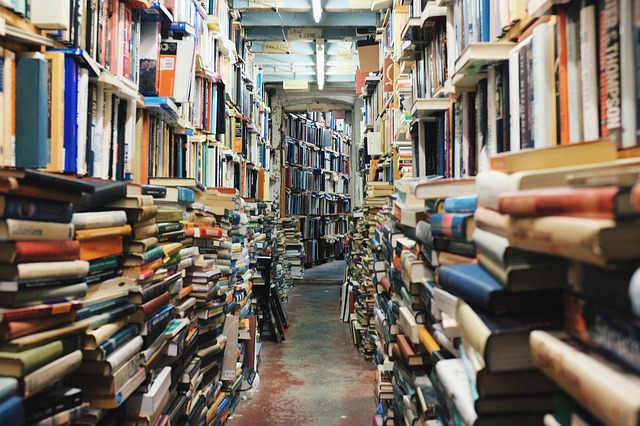
The beginning of November is the start of Jólabókaflóðið or the Christmas Book flood. During this time, the list of newly published books is announced in Iceland. Giving a book on Christmas eve is a longstanding tradition in Iceland that started during World War 2. Books weren’t as expensive back then, so families could offer to give them as presents. The bulk of books sales for the year happens at this time. Every person gets a book in the family to take to bed with them. I think it is lovely that after dinner and opening gifts on Christmas Eve, that Icelandic people cozy up with a book and some chocolate. After Christmas, everyone talks about the books they have read and give their opinion on it.
3. Dagur Íslenskrar Tungu – Icelandic Language Day
It is celebrated on November 16th, which is the same day as the birthday of 19th-century poet Jónas Hallgrímsson. Even though not every Icelandic person celebrates this day, most, if not all, are very proud of their language. In my second podcast episode, which is a brief history of the Icelandic language, I talk about the committee that was formed to preserve the language. Dagur Íslenskrar tungu was created because Icelandic people feel it is important to protect their language. Sometimes there are gatherings to celebrate this day.
4. Icelandic Sovereignty Day
December 1st is Sovereignty day, not to be confused with Icelandic Republic Day on June 17th. On this day in 1918, Iceland signed the Act of Union with Denmark, which recognized Iceland as a fully sovereign state but was still united with Denmark under a common monarch. Before Icelandic Republic day, this used to be a national holiday and people had a day off from work. While it is no longer a day that people have off, many people still fly the Icelandic flag and observe it in their own way. I’ll talk more about Icelandic Republic day later on in this podcast.
5. The 13 Icelandic Yule Lads Come to Town
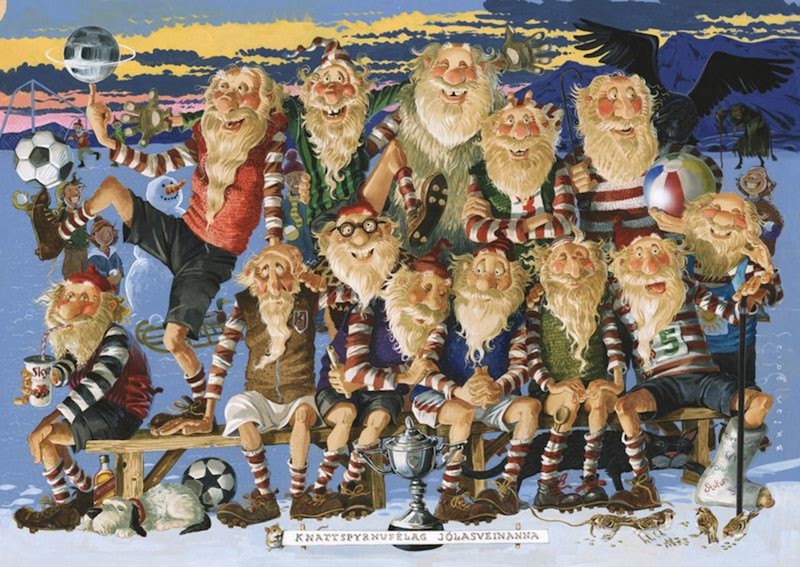
The Christmas holiday season is in full swing in December. People have already decorated their houses with lots of colorful lights, there are festive activities and people are extra cheery. I feel like it kicks into high gear when the 13 Yule Lads or 13 Santa Clauses start coming to down to town from the mountains.
The first comes on December 12th and they arrive one by one until the last lad is in town on December 24th, which is Christmas Eve. I plan to do a podcast episode on the 13 Yule lads before Christmas this year, so keep a look out for that. For now, just know that the Santas are quite mischievous and they each have a particular thing that they do while in your house that can be considered annoying or funny, depending on who you ask. The bright side is that they bring well behaved children small gifts.
6. Þorláksmessa – St. Þórlákur’s Mass
If you are in Iceland on December 23rd, you might get a strong whiff of something putrid. Just know that your nose is not deceiving you because you are probably smelling fermented Skate, which is known as Skata in Iceland. St. Þórlákur is the patron saint of Iceland and his day is on the 23rd of December. On this day, many Icelandic people observe Þorláksmessa and eat fermented skate. In the olden days, eating this foul smelling skate was a way to symbolize the end of the Christmas fast.
The smell of this fermented fish is so intense that most people opt to go out to a restaurant to eat it so they can avoid having the smell in their house. I have also heard that some people who have eaten the fish out at a restaurant immediately change and wash the clothes they were wearing that night as way of preventing the smell from lingering in the clothes fabric and their homes. I have never tastes fermented skate but I have definitely smelled it, which is quite unpleasant.
The 23rd of December is also the last day that people can buy gifts in Iceland as Icelandic people give their gifts on the following evening.
7. Aðfangadagur – Christmas Eve & Jóla – Christmas
Christmas is celebrated on the 24 of December (aðfangadagur) at 6pm in the evening in much the same way that people in the US celebrate it on the 25th. If you are near a church in Iceland at the time, you’ll hear church bells ringing at 6 pm to signal that Christmas has started.
Most Icelandic households will have a traditional dinner of ptarmigan ( a type of bird found in Iceland), smoked lamb or smoked pork with pickled red cabbage and other side dishes, like sugar glazed potatoes. I especially love this time because everyone dresses up in formal attire for dinner, the houses are decorated to the “t” and the family sits together for a lovely dinner. After dessert, gifts are exchanged and more sweets are consumed, if you have room.
While the 25th is Christmas day (jóladagur), the 26th of December Annar í jólum (2nd day of Christmas) or known as boxing day in the UK. is also a holiday in Iceland and it is aptly named the 2nd day of Christmas
8. Gamlársdagur – New Year’s Eve
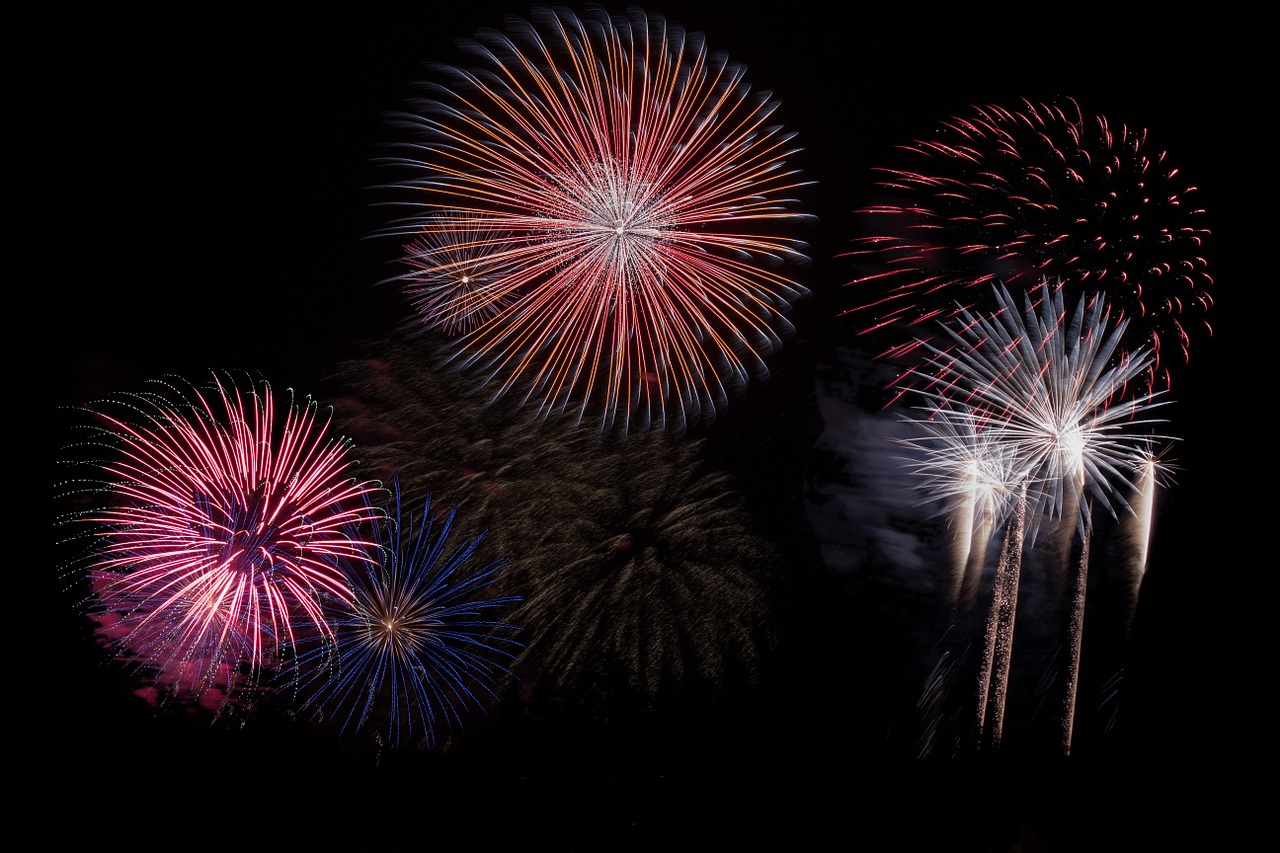
Celebrating the New Year in Iceland is an absolute blast. Friends and family gather around a huge bonfire (or brennur in Icelandic) that each township lights each year on December 31st, which symbolizes the burning of the old year. In addition to professional fireworks displays, Icelandic people buy a ton of fireworks to shoot off. If you are downtown, you will witness an amazing display of fireworks bursting all around you at the stroke of midnight. It is such a fun and joyful time to be in Iceland.
9. The Thirteenth Night (Þrettándinn)
The thirteenth night or better known as January 6th truly fascinates me. It is the last day of Christmas season and when the last Icelandic Santa goes back up into the mountains. However, there is more to this day. You can think of it like a small scale New Year’s eve because people go to bonfires, shoot off fireworks and sing songs. The elf king and queen even make an appearance at the bonfires. Some trolls might show up as well. It is certainly a fun end to the Christmas holiday.
10. Bóndadagur – Husband’s Day
This is the first Friday between January 19th and 25th. It marks the beginning of Þórri, which is the 4th winter month on the Norse Calendar. On this day, women give gifts to their husbands or boyfriends and cook them a traditional Icelandic meal, like hangikjöt (smoked lamb).
11. Þórrablót – Þórri Festivities
This day also starts the beginning of Þórrablót, which translates to Þórri festivities. During this month long period, Icelandic people have gatherings where they feast on traditional foods, drink and have lots of merriment. A typical Þórrablót festival will have smoked lamb, boiled lamb´s head (svið), fermented shark (hákarl), congealed sheep’s blood wrapped in ram’s stomach (blóðmör), flatbread and lots of Icelandic spirits. After dinner, games are played, traditional songs are sung, people dance and stories are told into the wee hours of the morning.
12. Konudagur – Women’s Day
The month of Þórri ends off with Konudagur or wives day, which is typically the Sunday that falls between February 18th and the 24th. This time around the men have to treat the women in their lives by buying them flowers or some other gift. Some husbands even do the cooking.
Up next are the holidays leading up to lent, which encourage an immense amount of eating of sweets and heavy foods.
13. Bolludagur – Bun Day
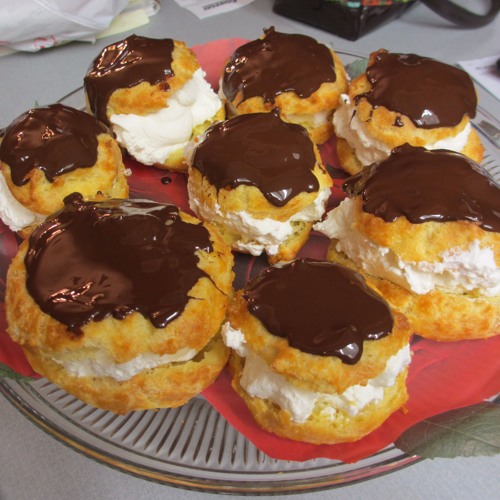
This takes place two day before lent. Bakeries and individuals bake sweet cream puffs filled with cream and jam that are then drizzled with chocolate. The hilarious part about this holiday is that Icelandic children make wands in school that they use on this day to smack their parents on the butt while yelling “bolla, bolla, bolla”. For each smack, they get a bun. I have witnessed and eaten some delicious Icelandic buns on this day and it is incredible the amount of them that are made for this holiday It is also amazing how many adults and children can eat!
14. Sprengidagur – Bursting Day
Next is Sprengidagur or bursting day. Yes, this holiday is dedicated to eating as much possible so that you feel like you will burst! Many Christians might know this day as Shrove Tuesday, and if you celebrate Mardi Gras then this is the same as Fat Tuesday. Icelandic people eat as much as they can of heavily salted lamb and pea soup. Back in the day, this would have been their last proper meal before the start of Lent.
15. Öskudagur – Ash Wednesday
The last day that makes up the trifecta of celebrations around this time is Öskudagur or Ash Wednesday. I went to catholic school from the age of 5 until 18, so I was expecting to see a lot of people walking around with the sign of the cross in ashes on their foreheads. Instead, I saw children dressed in costumes, going from shop to shop singing for candy. While it is not technically Halloween, it certainly feels that way.
16. Páskar – Easter
Easter is a big deal in Iceland. While most of the people who celebrate Easter are focusing on the religious aspect of the holiday, what comes across as most important for Icelandic people is the giving and receiving of large chocolate eggs filled with sweets. I have seen chocolate eggs that are larger than my head and a picture of an egg that was the same size of a decently tall child. It is amazing how serious Icelandic people are about their chocolate eggs and candy, in general.
It can be a tough time to be a tourist during this time because many stores and companies are closed on Maundy Thursday, Good Friday, Good Saturday, Easter Sunday and Easter Monday. Everyone in the country looks forward to this 5 day weekend, so just be conscious of that if you are planning to visit during that time.
Before I continue, I think it is worth noting that while Icelandic people observe a lot of holidays that are religious, as a whole, not many people actively go to church during the year or during these holidays. Those days are just some free time off to spend with your family, take a vacation or do whatever they want.
17. Sumardagurinn Fyrsti – First Day of Summer
The first day of summer or sumardagurinn fyrsti in Icelandic is observed on the third Thursday in April. This date was chosen because it is the end of the winter on the Old Norse calendar. While it is an official day off and there are celebrations, the weather is traditionally not summery on that day.
18. Bjórdagur – Beer Day
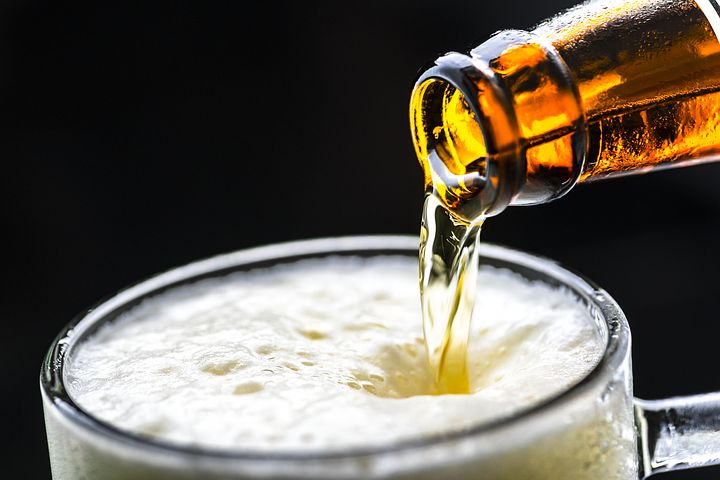
In my interview about Iceland’s beer history with Óli the brewmaster, we talked about Iceland’s complicated history with beer. March 1st, 1989 is when beer became legal again in Iceland. Every year on that day, many Icelandic people gather downtown to drink some delicious beer.
19. Sjómannadagur – Sea Men’s Day
Sjómannadagur, which is seamen’s day is celebrated on the first Sunday in June. Some communities display fish and there are games for kids. Icelandic fishermen have played an important role in the country’s culture, economy and history. Also, it used to be a very dangerous job, so it makes sense that a day is dedicated to them and the industry.
20. Þjóðhátíðardagurinn – Icelandic Republic Day
Earlier in the podcast, I mentioned Sovereignty day, which is on December 1st. On June 17th, 1944 Iceland became a fully independent nation. This date also coincides with the birthday of Jón Sigurdsson, who was a prominent leader in the Icelandic Independence movement. This day is a national holiday and Icelandic people have the day off. In downtown Reykjavík there are many events that take place to observe this day, such as parades, street theater, speeches, musical performances and activities.
The holiday wouldn’t be complete without the Fjallakonan, which means, woman of the mountain. She wears the Icelandic traditional costume and reads a poem to the crowd. I find it pretty cool that Icelandic people chose a woman as their symbol of gaining their independence from the Danish King, who was seen as the “father” of the country.
21. Kvenréttindadagurinn – Women’s Rights Day
This is celebrated on June 19th. On that day in 1915, married Icelandic women gained the right to vote and stand for office in Reykjavík and Hafnarfjörður, which meant they had political independence from their husbands. Bríet Bjarnhéðinsdóttir played a major role in the women’s rights and women’s suffrage movement in Iceland. A floral wreath is laid on her grave on that day and other events take place around the country.
22. Jónsmessa – The Mass of John the Baptist
Jónsmessa or the mass of John the Baptist was meant to celebrate John the Baptist’s birthday on June 21st. The celebration of his birthday is supposed to be the time of the summer solstice celebrations but the longest day of the year doesn’t always fall on that date. However, the name still remains for that day. The fascinating part is the Icelandic folklore associated with Midsummer’s night because this night is endowed with great magical powers.
According to folklore, cows start talking but people shouldn’t listen because cow talk can drive them mad, seals shed their skins and walk like men, and rolling around in the dewy grass at midnight will provide you with great health benefits. Additionally, if you sit at a crossroads where each road leads to a separate church, elves will approach you and try to seduce you with gifts. So many magical things can happen that night, so be prepared if you happen to visit Iceland during that time.
23. Verslunarmannahelgi – Shopkeepers Day
Verslunarmannahelgi or shopkeepers day is a bank holiday on the first Monday of August. It is meant to celebrate shopkeepers and other merchants, and it is a huge party weekend. Most Icelandic people leave the Reykjavík area to stay in summer houses or to go camping. Lots of drinking, eating, dancing and other types of merriment happen during this weekend. The Westman Islands plays host to the biggest party of the weekend and it is called Þjóðhátíð or National festival. Somewhere between 11-16,000 people attend this party, which is 4 times the Westman Island’s population. There is a huge bonfire, fireworks, live music, and red torches that light up the valley. It is an epic weekend of partying.
24. Réttir – Sheep Round Up
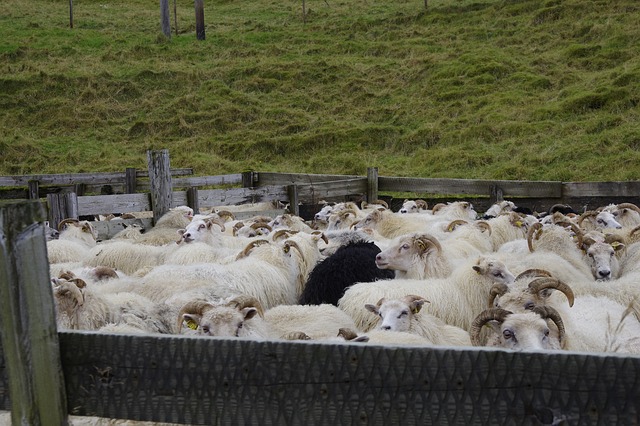
The last tradition on the list is Réttir, which is the annual sheep roundup that starts in September and ends in early October. This is quite the undertaking and is one of Iceland’s oldest cultural traditions. Icelandic sheep are allowed to graze freely in the countryside during the summer months but once summer is over, they are collected by their owners. However, collecting them means traveling to mountains and valleys to find them. There is a lot of walking and riding on horses involved. Family, friends and anyone interested in helping, flock out to the countryside to help Icelandic sheep farmers round up their herd. Tourists are are welcomed to join in as well. After the roundup is finished, there is a night of celebration called the Réttaball, where here is singing and dancing at a local hall.
Let’s be social! Here is where you can connect with me on social media platforms:
I hope you enjoyed this episode that is chock full of information about Icelandic holidays, traditions and celebrations. I release a new podcast episode every week. Make sure you are subscribed to the All Things Iceland podcast so you don’t miss new episodes. If the platform you are listening to this podcast on allows you to leave a review, please do so, if you haven’t already.
Þakka þér kærlega fyrir að hlusta (og að lesa) og sjáumst fljótlega
Thank you kindly for listening (and reading) and see you soon!